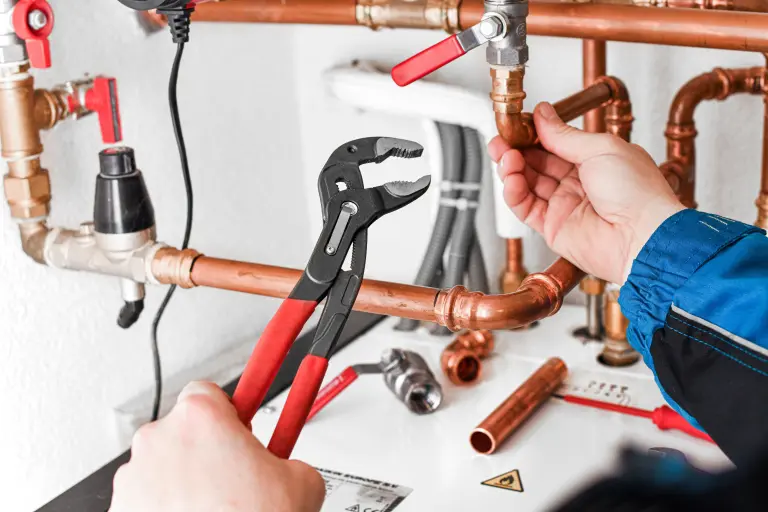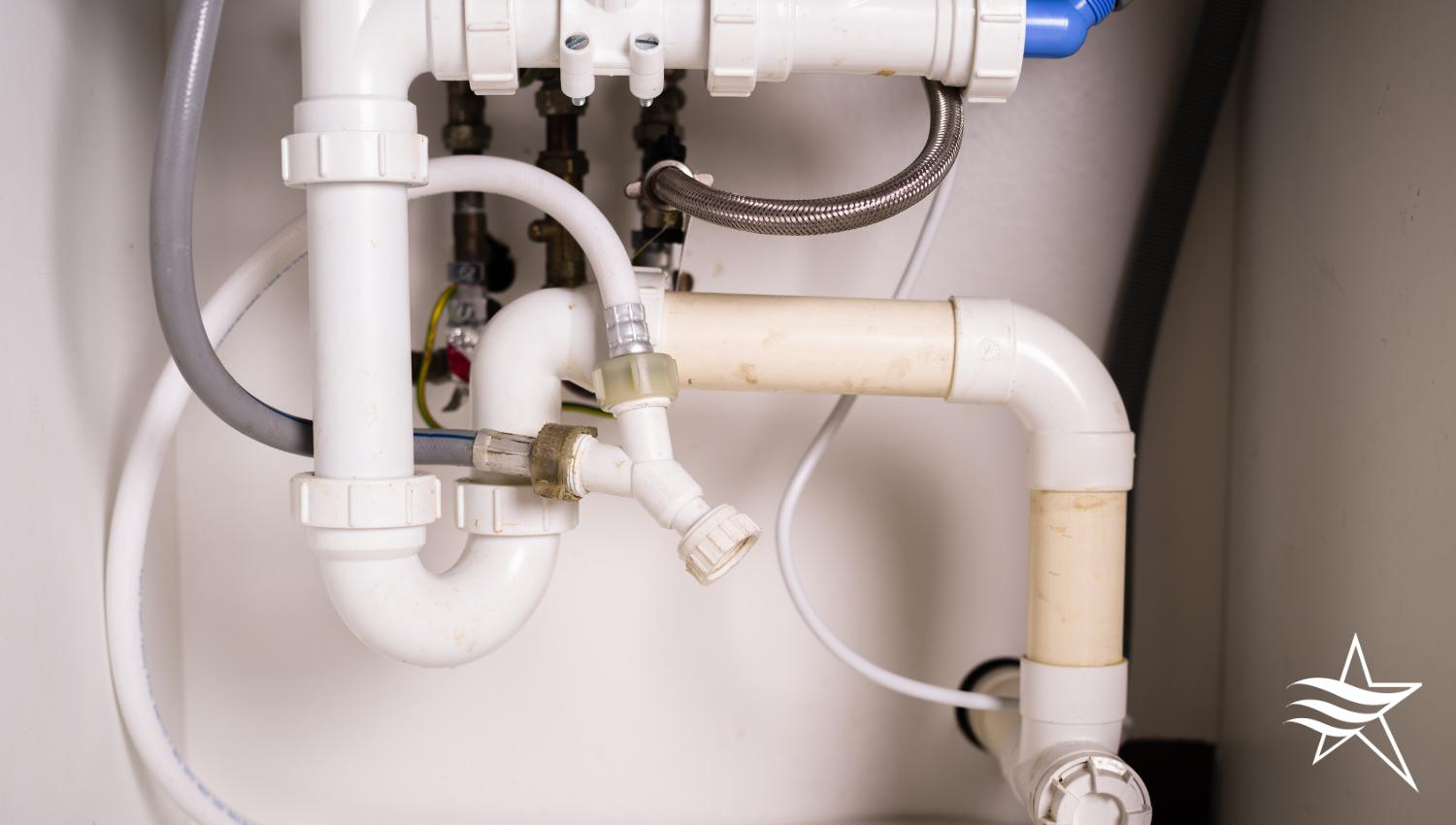Why Investing in Repiping Services Is Crucial for Your Home's Plumbing Wellness
Repiping solutions play a necessary duty in maintaining a home's pipes health. In time, pipelines can rust, leak, or become clogged up, bring about prospective hazards and ineffectiveness. House owners frequently ignore the indications of weakening plumbing, which can result in significant damage. Comprehending the need for repiping is important. What factors should home owners consider prior to making this financial investment? The solutions might surprise you.
Understanding the Importance of Repiping
While numerous property owners may ignore the importance of repiping, it plays a crucial function in maintaining the total health of a pipes system. In time, pipes can wear away, develop leaks, or come to be obstructed with mineral deposits, resulting in reduced water top quality and circulation stress. Repiping addresses these issues by replacing old, broken pipelines with new, durable materials, guaranteeing a reliable water and decreasing the threat of expensive fixings connected with leaks and water damage. In addition, modern-day piping materials are commonly a lot more ecologically pleasant and reliable, contributing to lower energy expenses and boosted water conservation. Carrying out a repiping project can improve a home's resale worth, making it a prudent financial investment for property owners. Eventually, acknowledging the value of repiping permits property owners to take proactive steps in guarding their plumbing systems and guaranteeing a safe, practical living environment for their family members.
Usual Indications That Show the Demand for Repiping
Home owners must be cautious for sure indicators that suggest the demand for repiping, as neglecting these issues can lead to extra severe pipes problems. One common sign is the presence of regular leakages, which can suggest aging or deteriorating pipelines. Furthermore, a recognizable decrease in water pressure might show clogs or corrosion within the pipes system. Homeowners might additionally discover tarnished or corroded water, signaling pipeline degradation. Unexplained water expenses that are significantly more than common can also hint at leaks hidden within the walls. In addition, the development of mold and mildew or mildew in areas near plumbing components can suggest moisture issues stemming from damaged pipes. If the home has old galvanized piping, it may be time to believe concerning repiping, as this material is susceptible to rust and deterioration. Acknowledging these indicators early can help keep a healthy and balanced plumbing system.
The Threats of Ignoring Plumbing Issues
Overlooking pipes problems can bring about substantial water damages, which may jeopardize the architectural honesty of a home. Additionally, unsolved leaks can create a setting conducive to mold and mildew development, presenting major carcinogen to residents. Dealing with plumbing problems immediately is important to safeguard both home and wellness.
Water Damage Worries
When pipes issues go unaddressed, the threat of water damages intensifies significantly. Leaks, drips, and cracks in pipes can lead to significant water intrusion, endangering the structural integrity of a home. Gradually, also small leaks can create rot, mold and mildew growth, and damage to wall surfaces and flooring, causing costly fixings. Water damages can additionally influence electrical systems, creating hazardous conditions. House owners often undervalue the advancing impact of small leakages, which can bring about extensive damage if not immediately dealt with. Neglecting plumbing concerns not only raises the likelihood of prompt damage however can likewise reduce residential or commercial property value and pose long-term financial problems. Because of this, prompt repiping services are necessary to prevent water damages and preserve a healthy and balanced home environment.
Health Hazards Boost
Unsettled plumbing problems can cause substantial health risks within a home. Contaminated water from corroded pipes can lead and present harmful microorganisms to severe health problems. Mold and mildew development, commonly a result of leakages and excess dampness, poses breathing dangers and can trigger sensitive responses. Furthermore, stationary water can draw in bugs such as pests and rats, which carry diseases that further jeopardize family members wellness. Disregarding these plumbing issues not just compromises the safety and security of residents but can likewise decrease residential or commercial property value. Addressing plumbing issues via repiping solutions is essential. Prompt intervention not only safeguards health but also guarantees a secure living environment, protecting against a lot more substantial damages and expensive repairs down the line.
Various Kinds Of Piping Products
Piping products are an important part in plumbing systems, influencing longevity, effectiveness, and overall performance. Different choices are readily available, each with one-of-a-kind properties and applications. Copper piping is known for its long life and resistance to deterioration, making it a popular option for both chilly and hot water lines. PVC (polyvinyl chloride) is lightweight, cost-effective, and resistant to chemical damages, primarily utilized for drain and vent systems. PEX (cross-linked polyethylene) has actually gained popularity as a result of its flexibility and ease of installment, enabling fewer joints and prospective leakage points. Galvanized steel, though when common, is less positive today due to its sensitivity to corrosion and minimized water flow in time. Each product offers unique benefits and downsides, making it essential for homeowners to speak with pipes experts to figure out the most appropriate alternative for their particular needs and problems. Selecting the appropriate piping product can considerably impact the effectiveness and safety and security of a pipes system.
The Repiping Process: What to Anticipate
The repiping procedure begins with a thorough assessment of the existing pipelines to determine concerns and establish the most effective course of activity. Following this analysis, house owners will certainly need to pick suitable replacement materials that suit their pipes requires. Lastly, an introduction of the setup procedure will give understandings into what to expect throughout this significant home improvement.
Assessment of Existing Pipelines
An exact analysis of existing pipes is important for making certain the lasting health and wellness of a plumbing system. This examination entails inspecting the materials, age, and problem of the pipes, along with determining any kind of signs of rust, leaks, or blockages - Houston Repipe Company. Professional plumbers typically use advanced techniques such as video evaluations to obtain a clear view of the pipeline's interior without intrusive procedures. By identifying problem areas early, house owners can protect against additional damages and expensive repair services in the future. Furthermore, comprehending the existing state of the plumbing infrastructure aids in making informed choices regarding needed upgrades or repiping. In general, an extensive assessment acts as the structure for a successful repiping procedure, ensuring that the new system meets here the home's specific demands
Picking Replacement Products
After examining the existing pipelines, house owners encounter the vital choice of picking ideal replacement materials for their plumbing system. Typical alternatives consist of copper, PVC, PEX, and CPVC, each with distinctive advantages and drawbacks. Copper is understood for its longevity and resistance to rust, making it a lasting option. PVC is light-weight and affordable, suitable for drain and vent lines. PEX supplies adaptability and is resistant to scale and chlorine, making installation easier in tight areas. CPVC resembles PVC however can hold up against higher temperature levels. Property owners need to take into consideration aspects such as budget plan, regional structure codes, and the certain needs of their pipes system when making this decision, making sure perfect efficiency and longevity for their home's plumbing infrastructure.
Installment Process Overview
Repiping a home can be a considerable endeavor, however understanding the installment procedure assists home owners get ready for what lies in advance. The process commonly starts with a comprehensive evaluation of the existing pipes system to determine issue locations. Next, a detailed strategy is formulated, detailing the necessary materials and timelines. On the installment day, specialists will often begin by turning off the water supply and draining pipes the existing pipes. They after that remove the old piping, which may include opening up walls or ceilings for access. Brand-new pipes are installed, guaranteeing they fulfill present pipes codes. The system is checked for leakages, and any type of openings are repaired. Homeowners can expect a clean and effective procedure, decreasing disruption to their lives.
Long-Term Perks of Repiping Your Home
While several homeowners may forget the value of updating their plumbing, the long-term benefits of repiping a home can greatly enhance both its value and performance. Among the main benefits is boosted water high quality. Older pipelines may harbor pollutants and rust, while new piping guarantees safe and clean water shipment. Furthermore, repiping can result in boosted water pressure, making everyday tasks much more effective.

How to Pick the Right Pipes Solution for Repiping
Exactly how can property owners guarantee they pick the very best pipes service for repiping? Initially, they ought to look into regional pipes business, concentrating on those that focus on repiping services. Checking out on-line testimonials and endorsements can give insights right into the top quality of service provided. It's important to look for ideal licensing and insurance policy, ensuring the selected business follow neighborhood regulations
House owners ought to also ask for comprehensive quotes from several service providers to compare pricing and services used. Engaging straight with potential plumbing technicians can help evaluate their expertise, communication skills, and readiness to address concerns. On top of that, requesting referrals from previous customers can confirm a business's integrity and craftsmanship.
House owners must take into consideration the business's warranty policies on materials and labor, as this can reflect their dedication to high quality. By following these guidelines, house owners can make an educated selection, securing their plumbing wellness with reliable repiping services.
Regularly Asked Concerns
For how long Does a Regular Repiping Project Take to Total?
A common repiping project generally takes in between one more info to five days to complete, depending upon the size of the home and complexity of the pipes system. Appropriate planning and service provider expertise can affect overall duration substantially.
Will Repiping Rise My Home's Resale Value?
Repiping usually enhances a home's resale worth, as prospective purchasers appreciate updated pipes systems. This improvement lowers potential plumbing issues, making the property much more appealing and potentially warranting a greater asking price during sale negotiations.
Can I Keep in My Home Throughout Repiping?
During repiping, remaining in the home is commonly possible, yet it might depend on the extent of the job. Property owners need to get ready for momentary interruptions and seek advice from with service providers for specific setups and security considerations.
What Is the Ordinary Cost of Repiping a Home?
The typical expense of repiping a home commonly ranges from $4,000 to $15,000, depending on variables such as the dimension of the house, products utilized, and labor expenses related to the plumbing work. - Repipe Specialists
Do I Need an Authorization for Repiping Providers?
A permit is generally required for repiping services, as it ensures compliance with neighborhood building ordinance and laws. Homeowners should consult their neighborhood authority or a qualified plumbing technician to identify particular allowing demands for their location.
